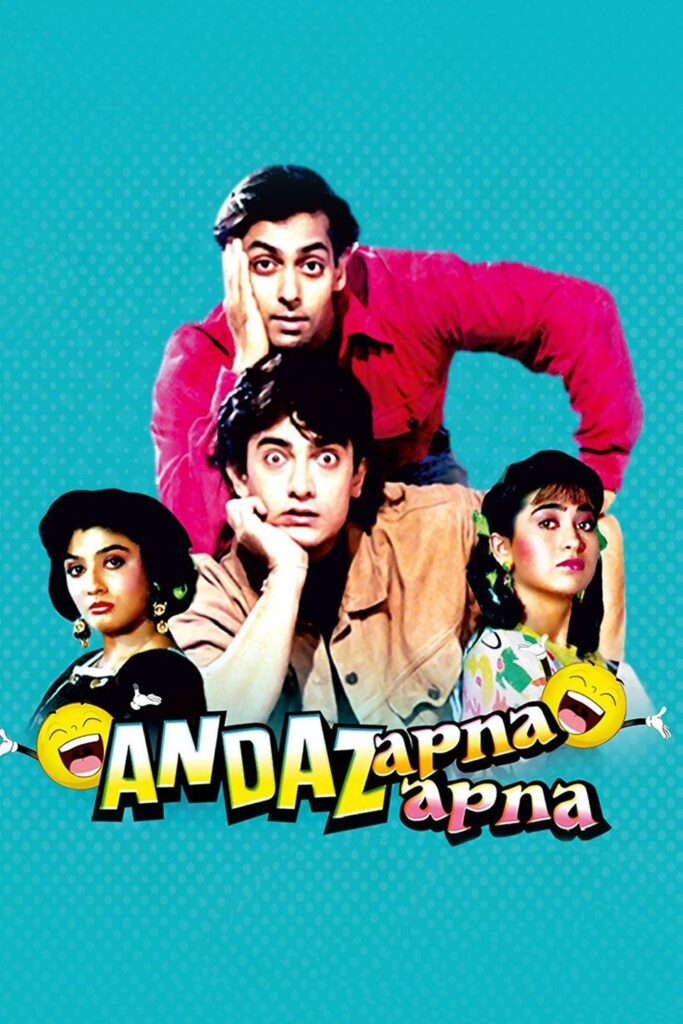“Andaz Apna Apna” is a classic Bollywood comedy film released in 1994, directed by Rajkumar Santoshi. With Salman Khan and Aamir Khan as the lead actors, the film also featured Raveena Tandon, Karisma Kapoor, and Paresh Rawal in prominent roles. The story revolves around two slackers, Amar (Aamir Khan) and Prem (Salman Khan), who dream of becoming rich by marrying a wealthy heiress. They both fall in love with Raveena (Raveena Tandon) and Karishma (Karisma Kapoor), who are actually long-lost sisters of a millionaire named Ram Gopal Bajaj (Paresh Rawal). The film follows the misadventures of Amar and Prem as they try to outsmart each other to win the hearts of the girls and secure their future.
“Andaz Apna Apna” is widely regarded as one of the most hilarious and entertaining comedies in Indian cinema. It achieved cult status over the years due to its rib-tickling humor, memorable dialogues, and unforgettable characters. The film’s slapstick comedy, witty one-liners, and over-the-top performances by the cast became its trademark. The chemistry between Aamir Khan and Salman Khan was lauded by the audience, and their comic timing was impeccable. The film didn’t perform exceptionally well at the box office when it was initially released, but it gained immense popularity through reruns on television and home video. As more people discovered the film, it gained a devoted fan following and became a cult classic.
“Andaz Apna Apna” has been a significant influence on subsequent Bollywood comedies, inspiring several filmmakers to explore the genre. Its unique blend of physical comedy, puns, and absurd situations served as a blueprint for many slapstick films that followed. One of the popular scenes from the movie, involving toilet humour, might have influenced a similar scene in Mahesh Babu’s film “Khaleja”.


